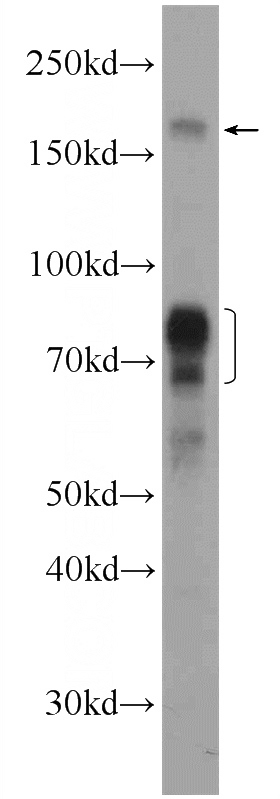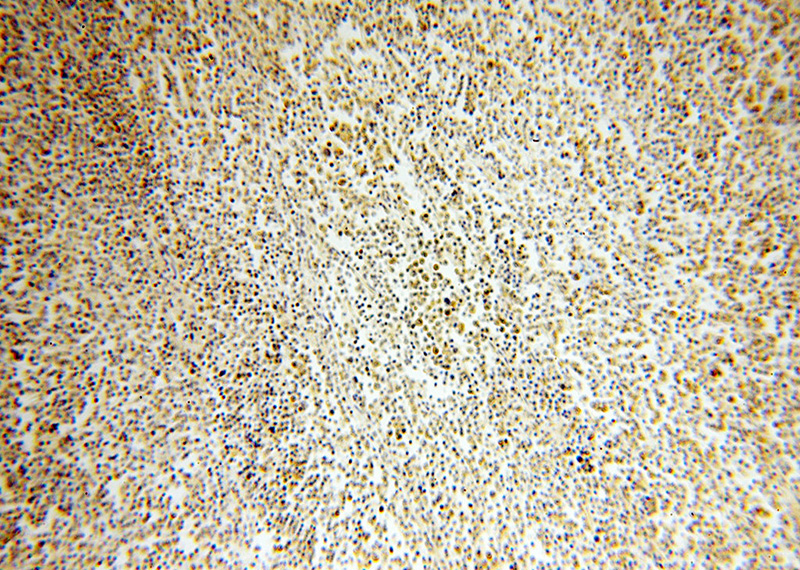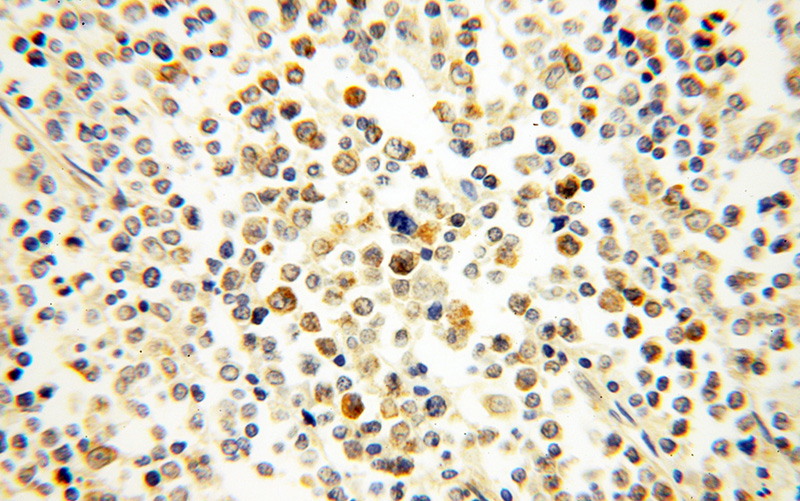-
Product Name
NSD3 antibody
- Documents
-
Description
NSD3 Rabbit Polyclonal antibody. Positive WB detected in HeLa cells, HEK-293 cells. Positive IHC detected in human lymphoma tissue. Observed molecular weight by Western-blot: 160-170kd,68-72kD
-
Tested applications
ELISA, IHC, WB
-
Species reactivity
Human,Mouse,Rat; other species not tested.
-
Alternative names
NSD3 antibody; Protein whistle antibody; WHSC1 like protein 1 antibody; WHSC1L1 antibody
-
Isotype
Rabbit IgG
-
Preparation
This antibody was obtained by immunization of NSD3 recombinant protein (Accession Number: NM_017778). Purification method: Antigen affinity purified.
-
Clonality
Polyclonal
-
Formulation
PBS with 0.1% sodium azide and 50% glycerol pH 7.3.
-
Storage instructions
Store at -20℃. DO NOT ALIQUOT
-
Applications
Recommended Dilution:
WB: 1:200-1:2000
IHC: 1:20-1:200
-
Validations

HeLa cells were subjected to SDS PAGE followed by western blot with Catalog No:113285(WHSC1L1 Antibody) at dilution of 1:600

Immunohistochemical of paraffin-embedded human lymphoma using Catalog No:113285(WHSC1L1 antibody) at dilution of 1:50 (under 10x lens)

Immunohistochemical of paraffin-embedded human lymphoma using Catalog No:113285(WHSC1L1 antibody) at dilution of 1:50 (under 40x lens)
-
Background
WHSC1L1, also named as NSD3 and DC28, belongs to the histone-lysine methyltransferase family and SET2 subfamily. It is histone methyltransferase. WHSC1L1 is a potently transforming oncogenes based on the number of altered phenotypes expressed by the cells. It contains a PWWP-domain that is a methyl-lysine recognition motif involved in histone code modification and epigenetic regulation of gene expression. Knockdown of WHSC1L1 in 8p11-12–amplified breast cancer cells resulted in profound loss of growth and survival of these cells. (PMID:20940404). This antibody recognize the long isoform (160-170 kDa) and short isoform (68-72 kDa).
-
References
- Yang ZQ, Liu G, Bollig-Fischer A, Giroux CN, Ethier SP. Transforming properties of 8p11-12 amplified genes in human breast cancer. Cancer research. 70(21):8487-97. 2010.
- Kang D, Cho HS, Toyokawa G. The histone methyltransferase Wolf-Hirschhorn syndrome candidate 1-like 1 (WHSC1L1) is involved in human carcinogenesis. Genes, chromosomes & cancer. 52(2):126-39. 2013.
- Chen Y, McGee J, Chen X. Identification of druggable cancer driver genes amplified across TCGA datasets. PloS one. 9(5):e98293. 2014.
Related Products / Services
Please note: All products are "FOR RESEARCH USE ONLY AND ARE NOT INTENDED FOR DIAGNOSTIC OR THERAPEUTIC USE"
